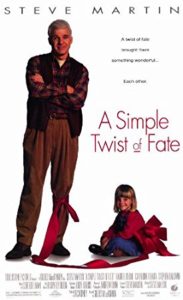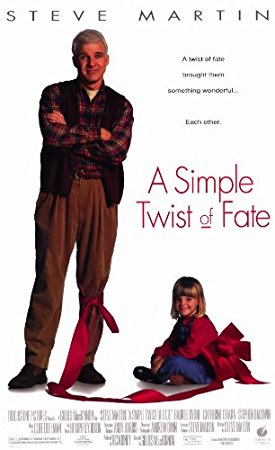 In the middle of the 19th century, Englishwoman Mary Anne Evans was afraid she wouldn’t be taken seriously as a writer unless she published under a man’s name. Women writers in the 1860s were stereotyped as writing light and frivolous romances. The mid-century was several decades before women like authors Jane Austen and Agatha Christie exploded on the literary scene along with Americans Louisa May Alcott and Harriet Beecher Stowe.
In the middle of the 19th century, Englishwoman Mary Anne Evans was afraid she wouldn’t be taken seriously as a writer unless she published under a man’s name. Women writers in the 1860s were stereotyped as writing light and frivolous romances. The mid-century was several decades before women like authors Jane Austen and Agatha Christie exploded on the literary scene along with Americans Louisa May Alcott and Harriet Beecher Stowe.
Mary Anne Evans was thought to be unattractive and not easily married off – so her father saw that his daughter was given an education as a young girl, something not afforded many young women in the 1800s. Her father Robert Evans managed a large estate with its own library. Mary Anne was given free access to the library where she honed her classical education aided by correspondence with her previous tutors from her younger years.
After her father’s death in 1949, Mary Anne (also known as Marian) was 30 years old. She soon traveled and lived in Switzerland, further cultivating her worldliness. She had already translated several works into English under her own name and, returning to England, she became a literary editor and reviewer. In 1856 she wrote an essay for a review journal titled “Silly Novels by Lady Novelists”. It’s no wonder that after that she used the pen name George Eliot instead of her own and the fact that “he is a she” has confused many of us ever since.
George Eliot wrote serious novels. Any English literature class or book group that has tackled The Mill on the Floss or Middlemarch learns that Eliot’s psychological insight isn’t for every reader or for uncomplicated discussion. Her first novel, Adam Bede, is not as well known by most readers but it has been in print ever since it was published in 1859. Adam Bede deals with some very real and unromantic themes at the turn of the 18th century in an English village – a love triangle, an unexpected pregnancy, and the murder by a mother of her child. It was published in three volumes and earned Eliot a respectful comparison to Charles Dickens.
A year later, she finished Mill on the Floss, also published in three volumes and set again in the English countryside in the late 1820s. Middlemarch, published in 1871-1872 was her next to last book and is regarded as her best work. It was published in eight installments over 16 months and one edition is 863 pages. Middlemarch deals with love, marriage, second changes and, like other important writers in the 19th century, social and political reform. Her last book, Daniel Deronda is the only one set in contemporary society – in 1870s England and Germany.
Evans had several scandalous affairs during her lifetime and she even considered herself married to philosopher George Lewe’s and changed her last name to his. However, he was already married to another woman at the time. In 1880, at the age of 61, she legally married John Cross, a man 20 years her junior. This marriage ended shortly after when she fell ill from a throat infection and died later that year.
All of Eliot’s works have been adapted to film – and most of them several times as silent movies (Adam Bede 1918), Silas Marner (1913, 1916 and 1922.), or full-length features like Mill on the Floss (1936). The BBC developed all of Eliot’s books for television films or mini-series beginning in the 1970s.
It’s Steve Martin’s genius that took Silas Marner, published by Eliot in 1861, and turned it into one of my favorite movies. A Simple Twist of Fate was released in 1994 and I could watch this film over and over. Martin wrote the screenplay and stars in the film. The film also features some other great actors – Gabriel Byrne, Laura Linney, blue-eyed Steven Baldwin and comical Catherine O’Hara.
Although Martin as a comedian has serious roles in other films, many of them rely heavily on wisecracks and slapstick. A Simple Twist of Fate relies on Martin’s portrayal of self-loathing, his awkward denial of a world outside of his own shriveled existence, and ultimately, his sweet and honest humanity. Although the film is described as a loose adaptation of Silas Marner, the key elements of Eliot’s work are all there. Martin’s character is school teacher Michael McCann’s whose life is shattered by his pregnant wife’s admission that their soon-to-born baby is not his. He, like Marner, is heartbroken and humiliated and he leaves his home to disappear into another countryside. McCann, like Marner, exists alone and isolated as a hermit who refuses to become a part of the community surrounding him. They both become obsessed with their craft – Marner with his weaving and McCann with his finish carpentry. They both hoard the gold they earn. McCann turns his hard-earned cash into antique gold coins that he hides in a secret drawer.
When their gold is stolen by a local creep, both characters despair and the plot thickens. However, when a young child shows up one snowy night, she teaches both Marner and McCann that the gold they lost can be replaced by a child’s love. Their humanity is recovered by this simple twist of fate.
Martin’s A Simple Twist of Fate made $3.5M at the box office. It holds only a 43% rating on Rotten Tomatoes dot com but I never pay much attention to reviews anyway. One of the most positive reviewers, Kevin Thomas of the LA Times, described the movie “as a “charming update of Silas Marner” that is well written, well played and has substance and a musical score that successfully bring [George Eliot’s] 19th century literature into a moving and powerful modern-day film.” I whole-heartily agree.
Charlotte Canelli is the library director of the Morrill Memorial Library in Norwood, Massachusetts. Read Charlotte’s column in the January 11, 2018 edition of the Norwood Transcript and Bulletin.




